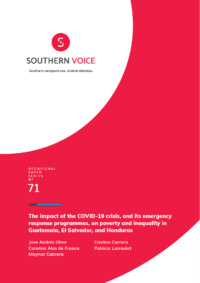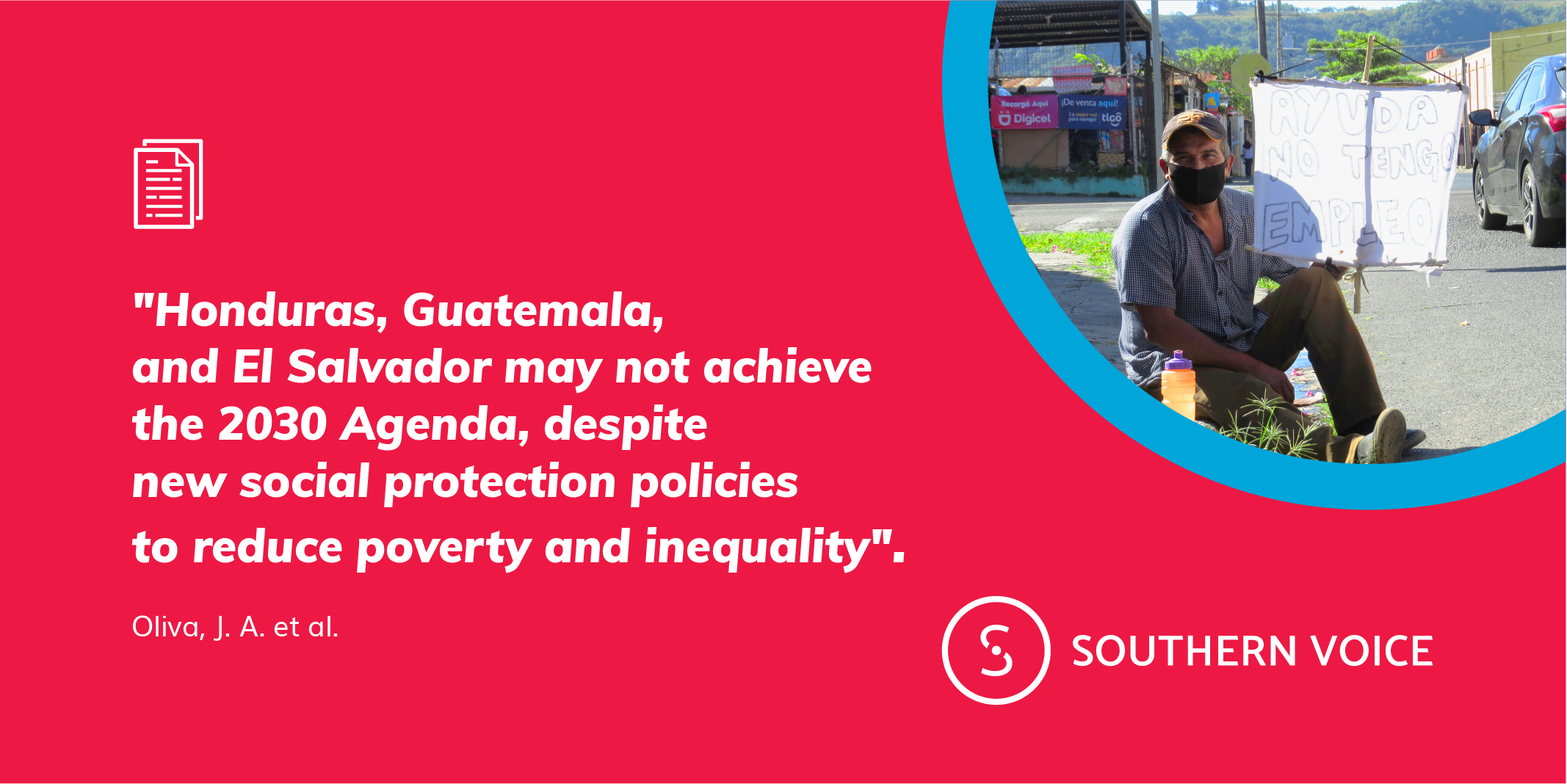We joined forces to respond to the social crisis resulting from the economic losses and the public health emergency that…
 This study used a microsimulation approach to examine the estimated impacts of COVID-19 on poverty and inequality in Guatemala, Honduras, and El Salvador. The analysis considered the entire household income distribution and contemplated among all scenarios two possible extremes: “concentrated losses” and “dispersed losses”. Safety net programmes implemented in the three countries were insufficient, even though they helped to prevent greater losses. Findings suggest that El Salvador was the most affected among the three countries. Evidence shows a deterioration from the pre-pandemic status or baseline after comparing the situation before and after the new safety net measures were implemented. Thus, it is possible to conclude that the programmes alone did not substantially improve the conditions that existed prior to the COVID-19 crisis.
This study used a microsimulation approach to examine the estimated impacts of COVID-19 on poverty and inequality in Guatemala, Honduras, and El Salvador. The analysis considered the entire household income distribution and contemplated among all scenarios two possible extremes: “concentrated losses” and “dispersed losses”. Safety net programmes implemented in the three countries were insufficient, even though they helped to prevent greater losses. Findings suggest that El Salvador was the most affected among the three countries. Evidence shows a deterioration from the pre-pandemic status or baseline after comparing the situation before and after the new safety net measures were implemented. Thus, it is possible to conclude that the programmes alone did not substantially improve the conditions that existed prior to the COVID-19 crisis.


